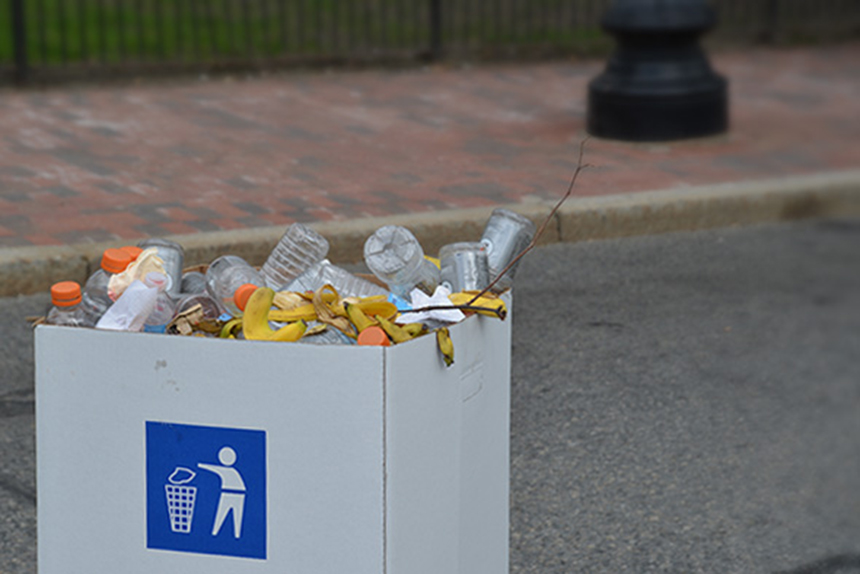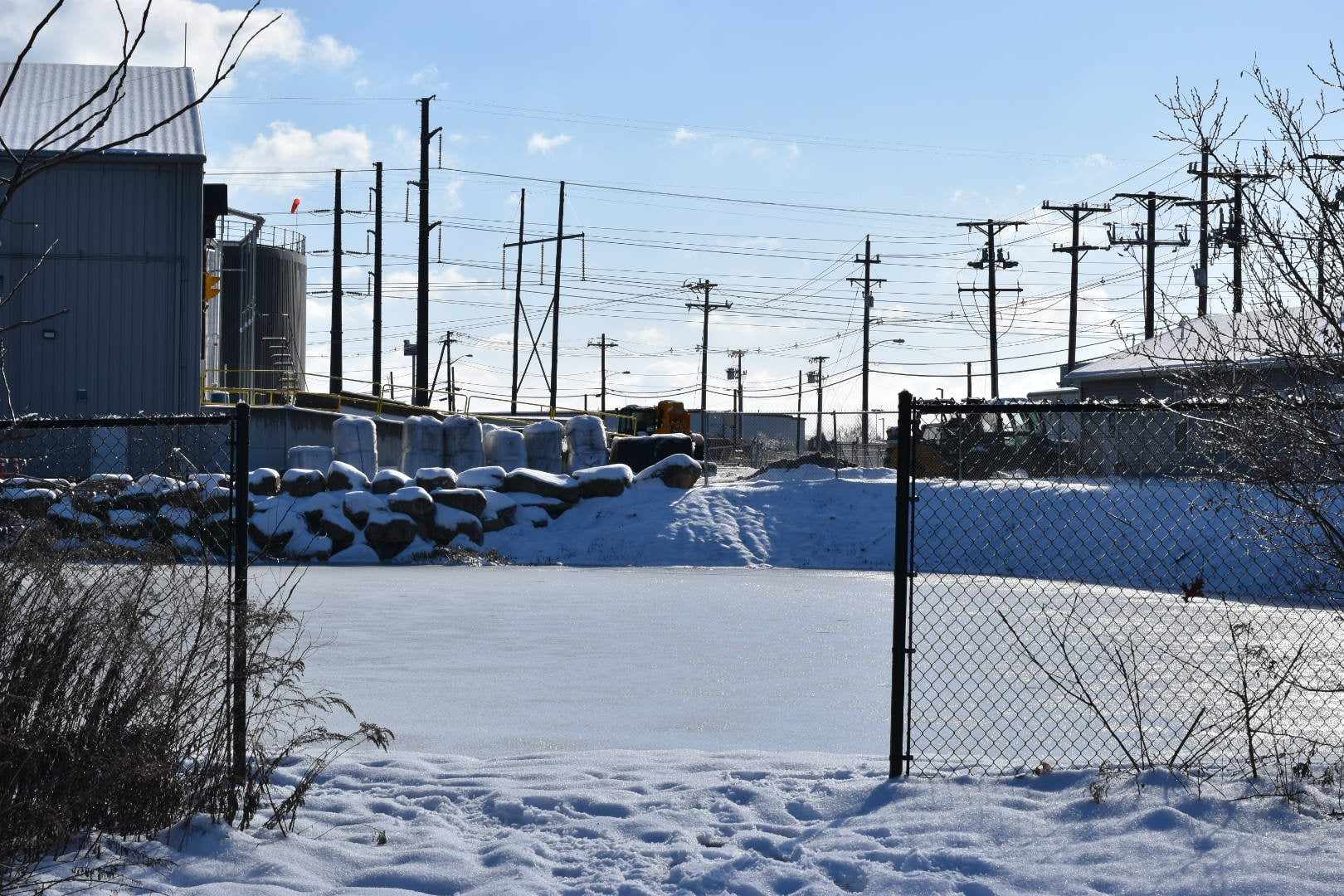DEM Issues Conditional Permit to West Warwick Medical-Waste-to-Energy Facility
March 20, 2020
WEST WARWICK, R.I. — The Rhode Island Department of Environmental Management (DEM) has issued conditional approval for MedRecyler-RI to use its intensive heat technology, known as pyrolysis, to dispose of medical waste. But before the permit is fully approved, the company is required to have a medical-waste expert prove the system works and doesn’t pose any health risks.
In a March 16 letter, DEM said it’s concerned that the shredding of untreated medical waste could release a spray of pathogens that could harm employees and the public. If the Division Road facility is approved, the company, a subsidiary of New Jersey-based Sun Pacific Holdings, would be able to process a range of material from across New England, including anatomical waste, animal waste, bedding, cultures and stocks, human blood, pathological waste, prescription drugs, and syringes and other medical “sharps.”
Once this required data is received, DEM plans to take public comments and hold a public hearing on the project. The facility must also comply with air pollution and safety requirements set by DEM and the West Warwick Fire Department.
On March 17, MedRecycler-RI CEO Nicholas Campanella had hoped to receive a business license from the Town Council. The meeting, however, was postponed by the coronavirus pandemic.
Campanella is nevertheless preparing a 10,000-square-foot industrial space at 1600 Division Road in anticipation of approval. He is confident that the medical-waste-to-energy system will work, despite the absence of a proven commercial-scale pyrolysis facility that processes medical waste.
The manufacturer of the system, Technotherm Inc. of South Africa, has three pyrolysis systems in operation — two are in South Africa, one serves a slaughterhouse and the other processes plastic waste, and a facility in the United Kingdom burns woody biomass. Construction is close to beginning on a sludge-waste-to-energy plant in Schenectady, N.Y., that also uses Technotherm equipment.
Local critics of pyrolysis have noted that the systems emit harmful pollutants such as dioxins and are temperamental and prone to breakdown. The Conversation Law Foundation has warned that they are expensive to run and frequently fail to meet air-emission standards.
Town council members in both West Warwick and East Greenwich are asking why the controversial project has progressed so far without public notice and opportunities for community input.
“I am very upset by this proposal,” East Greenwich Town Council member Renu Englehart said. Englehart lives close the proposed project site, an industrial/office park on the East Greenwich border that is also close to Coventry and Warwick.
She is asking how and why a state funding program financed MedRecycler-RI during non-public meetings and without any permits and evidence that the pyrolysis system works with medical waste. On Aug. 23, 2018, the Rhode Island Industrial Facilities Corporation (RIIFC), an entity within the Rhode Island Commerce Corporation (CommerceRI), approved, in executive session, a $7 million bond deal for the project. After another executive-session meeting a month later, the amount was increased to $13.5 million. About a year later, on Oct. 24, 2019, the RIIFC increased the taxable and tax-exempt bond deal to $17 million.
“I’ve never realized how an entity of the state did not give due notice to the towns in and around this project,” Englehart said. “Certainly, they should have solicited opinions from the towns if nothing else.”
CommerceRI said executive session is used to discuss and vote on projects because of privileged financial information that is needed to evaluate an agreement. Any application is considered confidential until it receives an approval to issue and sell the bonds, according to the state agency.
“The company is currently working through the various final approval subject to conditions such as getting appraisals, environmental site assessments, TEFRA [Tax Equity and Fiscal Responsibility Act] hearing, and DEM approvals,” said Brian Hodge, deputy director communications for CommerceRI.
Hodge didn’t reply when asked if state money helped fund the project.
Campanella insisted that the bonding doesn’t use state funds but instead allows a project investor to raise the capital by using state-backed bonds. “We are using private equity bonds from private investors,” he said.
The Rhode Island Industrial Facilities Corporation was created in 1966 as “a public body corporate and agency of the state” run by a five-member board of directors, whose purpose is to finance the acquisition, construction, financing, and leasing of projects within the state. Directors aren’t compensated.
Campanella’s attorney, K. Joseph Shekarchi, majority leader of the Rhode Island House of Representatives, insisted that everything has been done by the book.
Shekarchi, a Warwick Democrat, said he wasn’t involved with the bond deal and that public notification and “everything was followed by the letter of the law.” He said he represented Campanella when the CEO first attempted to built the facility in Johnston, securing support from Mayor Joseph Polisena. The agreement, however, fell through after the landowner increased the rent at the proposed site.
MedRecycler-RI sees pyrolysis as an answer to the the state and regional waste problem. The process uses intense heat in an oxygen-free vessel to chemically reduce medical refuse into a tar, ash, and gas that can be burned to generate electricity.
Pyrolysis isn’t a new technology, and is mostly used in research and by fossil-fuels companies. But there are few examples of successful commercial-scale waste operations.
Englehart said she is wary because Campanella has no experience in waste management, he doesn’t have a science degree, and his company doesn’t have a science officer.
“I’m not saying I’m an engineer or a scientist but I have the right people on the team that are (experts),” Campanella said.
If the facility is approved, Campanella said he will hire an industrial hygienist, general operators, technicians, an environmental scientist, and electricians to process up to 70 tons of waste daily. The application seeks to store medical waste onsite for two weeks, but Campanella said he will not store waste because he lacks the proper refrigeration equipment. The facility would operate 24 hours a day, seven days a week. The system’s gas byproduct would power four generators with a capacity of 1.4 megawatts of energy.
Campanella has promised to only accept items that would otherwise go into a landfill or be shipped to a medical-waste incinerator.
“Were taking a technology and were taking stuff that would go into a landfill and make it into a renewable product,” he said.
He claimed the process is proven and the equipment is certified to work.
“We aren’t spending $17 million because we want to to try something out,” Campanella said.




It is time to close Commerce RI if its process says it can allocate big bucks before any public notice that someone is asking the state for money. Commerce RI should only provide money AFTER public hearings and after all permits are approved.
I’m a local (licensed professional) engineer have been following/working w/ this technology for years with Molten Metal Technology (out of MIT) and ZeGen (New Bedford) in various pilot-scale configuration. IMO, this technology is ready for safe production scale.
Has anyone heard anything new on this, if it has been approved as of yet.